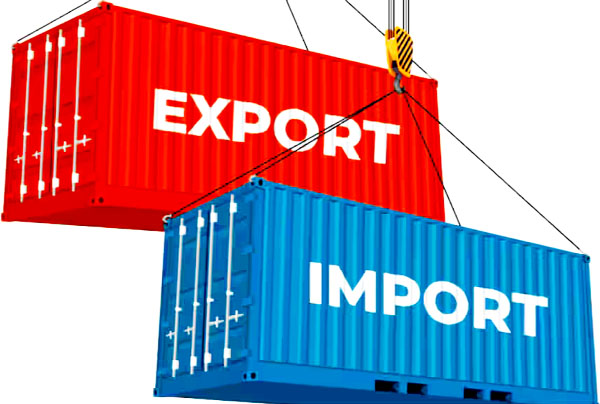NEW DELHI, Apr 29
Over the years, the dependence of India on Chinese imported goods such as telecom, machinery and electronics have increased. In fact, in the last 15 years there is a 30% rise in the import of such goods in India from China, as per a report by Global Trade Research Initiative (GTRI). The report highlights that the growing trade deficit with China is a cause of concern and the implications of this dependency is not only affecting the economic condition but it also has the implications on the national security dimensions.
As per the report, India’s exports to China have stagnated at around $16 billion annually in the period between 2019 to 2024 while the imports from China in the same time period have surged from $70.3 billion in 2018-19 to more than $101 billion in 2023-24. This has resulted in a cumulative trade deficit of $375 billion in five years.
Talking about the report, Ajay Srivastava, founder, GTRI said that the Indian government and industries need to evaluate and recalibrate their import strategy, fostering a more diversified and resilient supply chain. “This is imperative not only to mitigate economic risks but also to bolster domestic industries and reduce dependency on single-country imports, especially from a geopolitical competitor like China,” Srivastava added.
The volume growth in the food sector during the October-December quarter stood at 5.3%, down from 8.7% in the July-September quarter of ’23, according to NielsenIQ.
Moreover, the growth in imports from China has even been faster than the overall import growth as China’s export to India grew 2.3x faster than India’s overall import from all countries. In 2023-24, India’s total merchandise imports amounted to $677.2 billion, out of which $101.8 billion was coming from China, which means China accounted for 15% of India’s overall imports. Among this, $100 billion, that is 98.5%, imports were in major industrial product categories. The sectors are electronics, telecom and electrical, machinery, chemical and pharmaceuticals, products made of iron, steel and base metal, textile and clothing, plastics, automobiles, medical, leather, paper, glass, ships, aircraft, among others.
The report further added that when compared to India’s global imports of these industrial products, which total $337 billion, China’s contribution is quite significant, representing 30% of India’s imports in this sector. Fifteen years ago, China’s share was only 21%.
During April-January 2023-24, electronics, telecom and electrical products sectors had the highest import value at $67.8 billion, with China contributing $26.1 billion, a substantial 38.4%.
Meanwhile in the machinery sector, China accounts for $19 billion, which is 39.6% of India’s overall imports in the sector. However, the chemical and pharmaceutical imports during the period stood at $54.1 billion, out of this, 29.2% share, that is $15.8 billion, is acquired by China.
Similarly, the report said the total imports for plastics and related articles stand at $18.5 billion, with China providing articles worth $4.8 billion. This accounts for 25.8% of the total imports in this sector. In addition to this, many products imported from China, such as textiles, apparel, glassware, furniture, paper, shoes and toys are from categories dominated by micro, small, and medium enterprises (MSMEs), and most of these items could potentially be produced domestically.
“As the Chinese firms operating in India will prefer sourcing most requirements from their parent firms, Indian imports will rise sharply. For example, in the next few years, every third electric vehicle (EV) and many passenger and commercial vehicles on Indian roads could be those made by Chinese firms in India alone or through joint ventures with Indian firms,” the report said. The large-scale entry of Chinese automakers into India will impact the domestic auto/EV manufacturers, firms working in the EV value chain space and battery development, it added.



























